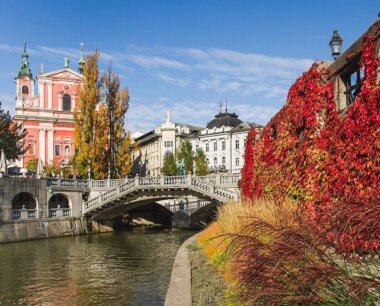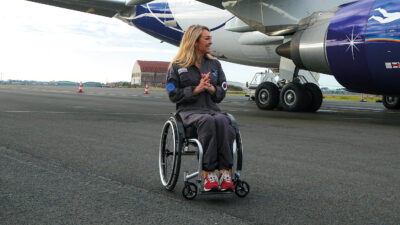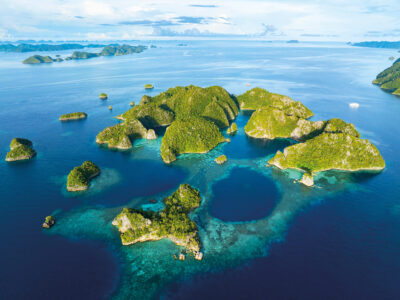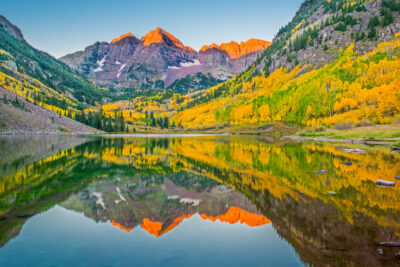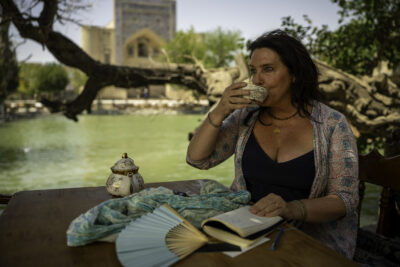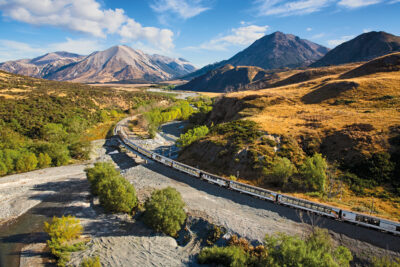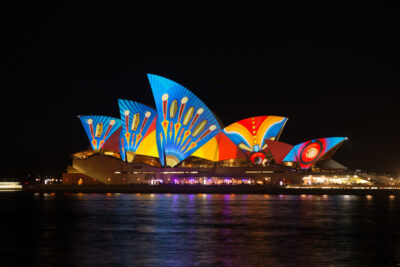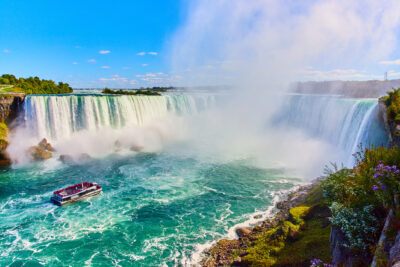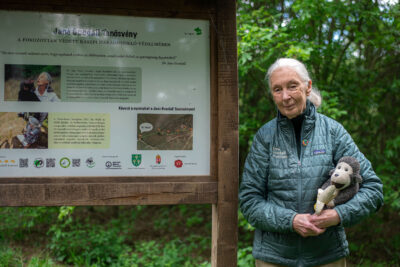
Earth Day: The dos and don’ts of travelling sustainably and responsibly
Want to get around ecologically? See the wildlife sustainably? Help the people you meet? Keep on the ethical straight and narrow with our list of responsible tourism dos and don’ts
First held on 22 April 1970, Earth Day is a day to honour the planet, to think about what we can do today to help build a better future.
For travellers, that goes well beyond carbon off-setting your flight – every step of your journey should be putting people, and the planet, first.
This year’s Earth Day theme is ‘our power, our planet’ so we thought we’d share with you 25 dos and don’ts for travelling sustainably and responsibly…
1. Do bring your own water bottle

The best reusable water bottle on the market? The one you already own. If your work involves attending events, there’s a good chance you already have one lying at the back of a cupboard somewhere. But if you don’t, look to Camelbak or Nalgene for lightweight and durable BPA-free bottles.
If water quality is a worry in your destination, try a self-filtering Water-to-Go bottle. Its in-built filters remove 99.9% of microbiological contaminants, so you can fill up from any non-saltwater source.
2. Don’t burden a donkey

In destinations where the terrain is tough, it’s not uncommon to see touts offering rides on donkeys and horses – but responsible travellers always give them a wide berth.
If you’d struggle with Santorini’s steep steps or Petra’s uneven pathways, spare a thought for the exhausted mules that have to carry tourists up and down them all day.
And that’s not the worst of it. “Many are poorly treated, neglected and beaten,” says animal welfare charity SPANA, which campaigns for ethical equine tourism.
“If you have animal welfare concerns on holiday, report them to the relevant country tourism board – and consult our Holiday Hooves Guide to find out how you can positively influence the treatment of animals overseas.”
3. Do be a trash hero

Next time you’re hiking or biking, do some litter picking as you go. It’s an easy way to do your bit, and helps to spread awareness in destinations that aren’t so hot on environmental issues.
Thanks to social media campaigns such as #2minutebeachclean and #binit4beaches, people are hitting the beach with the same attitude: “Finally, beach cleaning is cool,” says the Marine Conservation Society. “We’ve waited 25 years for this moment!” In last September’s Great British Beach Clean, MCS volunteers collected 249,823 litter items, weighing 6,048kg and filling 1,675 bags. Let’s keep that good work going.
4. Do see dolphins at their wildest

For most modern travellers, visiting an aquarium or zoo to watch performing dolphins is unthinkable – but that’s far from the only way they are mistreated.
Stay away from anywhere that ‘guarantees’ dolphin encounters (no matter how wild the location sounds).
Chances are, they are lured there by feeding – often by hand – which disrupts their natural behaviour, provokes the spread of diseases and encourages harmful interactions with humans.
Instead, choose a dolphin-watching tour with proven ethical credentials (such as the World Cetacean Alliance accreditation).
These will offer on-board marine experts and skippers who know how to find dolphins without endangering or spooking them.
5. Don’t go dune bashing

Life in the desert is hard enough without 4WD vehicles ‘bashing’ the dunes. Aside from the obvious noise and pollution, these white-knuckle joyrides disrupt the desert’s fragile ecosystem: killing plants, scaring wildlife, and scattering the seeds that lie in the topmost sand waiting for rain.
It’s an environmental disaster, affecting every form of life in the desert – including the communities who have deep economical and emotional ties to the land. Instead, we recommend low-impact walking tours or ethical camel treks – arranged by a firm that knows and respects the environment.
6. Don’t miss the switch

It’s one of our biggest hotel bugbears: you turn everything off before leaving your room, but return to find the lights blazing, the ceiling fan whirling, and even – for some unfathomable reason – the television playing to itself.
It’s time to have a quiet word with the hotel manager about housekeeping’s aversion to off switches.
They might not notice one complaint, but if we all say something, perhaps the message will get through.
Tick off a mental check-list before you lock your door: quiet energy-guzzlers such as air conditioning units and water heaters are particularly easy to miss.
7. Do bring your own bodywash…

…and make it a biodegradable one. While it’s always a good idea to opt for an all-natural, eco-friendly product, it’s especially pertinent if you’re heading to a destination where waste water treatment isn’t as rigorous as it is at home.
Your shower run-off could be discarded into water sources or used to irrigate crops – with those chemically derived suds tainting the environment and aquatic food chain.
Opt for a biodegradable bodywash (such as Faith In Nature’s British-made hard soaps) for a lather that’ll break down quickly and organically.
8. Don’t ‘pet’ lions

Lion petting is a sordid, sickening business. The opportunity to stroke, cuddle, or walk with lions – particularly at fake ‘orphanages’ – is a common sight in southern Africa, where naïve visitors pay for up-close encounters.
What they don’t realise is that often these cubs have been snatched from their mothers, and can never be released into the wild – no matter what their keepers claim.
When they’re too big to manhandle, most lions are sold to zoos or ‘canned hunting’ parks, where gun-toting tourists give small fortunes to kill them.
9. Do use reef-safe sunscreen
Sea-swimmers and snorkellers take note: regular sun creams contain oxybenzone and octinoxate, which wreak havoc on marine life. The moment you slip into the water, they do too – polluting the ecosystem and even contributing to coral bleaching.
Palau, Hawaii and Florida’s Key West have already pledged to ban the sale of sunscreens with these ingredients, asking visitors to use mineral-based reef-safe creams instead.
These sit on the skin (rather than being absorbed), blocking UV rays with zinc oxide and titanium dioxide. Even if you’re staying on dry land, they’re worth checking out: oxybenzone and octinoxate have also been linked to increased cancer risk and fertility problems.
10. Do poo mindfully
When nature calls, do your business responsibly. If you’re staying in a hotel or homestay where the plumbing can’t cope with toilet paper, always put it in the bin provided: one reckless flush could wreck the entire sewage system.
Caught short in the great outdoors? Wild wees are fine – though make sure you’re at least 200m (preferably further) from the nearest water source.
The same rule applies for number twos, which you should bury: not under a rock, but in the earth – 15-20cm deep. And please, please take all of your used toilet paper with you: pop it in a freezer-quality ziplock bag, then dispose of it at home.
11. Don’t visit orphanages
“One of the biggest myths is that children in orphanages are there because they have no parents,” advises welfare charity Save the Children. “This is not the case. Most are there because their parents simply can’t afford to feed, clothe and educate them.”
If presented with the opportunity to visit or volunteer in an orphanage, approach with extreme caution. Are visitors vetted? What is your money spent on? How are the vulnerable children protected from forming bonds with tourists – and then being ‘abandoned’ again when they leave? If in doubt, say no.
12. Indigenous tourism

At best, tourism can empower indigenous communities – but at worst, these encounters are akin to a human zoo. “In principle, there is little harm in tourists visiting tribal peoples who have been in routine contact with outsiders for some time,” says Survival International, which campaigns on behalf of all indigenous people all over the world.
“But this only applies to tribal peoples who are happy to receive visitors, have proper control over where the tourists go and what they do in their communities, and receive a fair share of the profits.”
If in doubt, ask yourself: would you be comfortable if the tables were turned, and you were in the spotlight instead?
13. Don’t ride elephants
Elephants are not entertainment. And yet, they are all-too often forced to do circus tricks, paint with their trunks, kick balls – and carry humans on their backs.
“Most ‘domestic’ elephants are wild-born, captured when young and trained using cruel techniques,” says conservationist Ian Redmond OBE.
“Watch any mahout manoeuvring an elephant through crowded streets and he’ll likely be resting the point of his ankus (bull-hook) on its skin: a reminder that disobedience carries painful consequences.”
The tourism dollar is the most powerful tool in the fight for animal welfare, so spend yours wisely: on safaris to see elephants in the wild, or bona fide conservation efforts – such asThailand’s Elephant Nature Park and Elephant Hill tented camp.
14. Do approach slum tours with caution

According to the United Nations, one billion people live in slums around the world – and that number is likely increasing.
In many cities where deprivation is rife (such as Rio de Janeiro, Manila and Delhi), slum tours are marketed as a way to raise awareness and boost the economy, but you should choose your experience carefully.
Look for companies with good online reviews, no-camera policies, and proven initiatives to support the local community through charitable foundations and outreach projects. In Mumbai, for example, Reality Tours and Travel channels 80% of profits into the Dharavi slum.
15. Do take the slower route
The world’s rail systems have never been better connected or more energy efficient – so consider swapping planes for trains on your next adventure.
“Although railways still have environmental impacts, they are considerably less than both road and air travel,” says environmental network Friends of the Earth.
Operators are electrifying lines and replacing diesel trains with quieter, cleaner locomotives – and many European ones run on hydroelectric or wind energy. In 2021, Germany launched the world’s first hydrogen-powered train: its only waste product is water. Now that’s an idea we can get on board with.
Read next: The 22 best new rail routes for 2025
16. Do make ethical food choices
Make a beeline for family-owned restaurants, and always opt for locally sourced dishes rather than imported fare: the fewer food miles the better. But beware some delicacies.
In Africa, eating bushmeat endangers wildlife and puts you at risk of diseases such as Ebola and Mpox; in Asia, the likes of shark fin soup and turtle jelly make a grisly addition to many menus.
While bird’s nest soup is frequently claimed to be responsibly sourced, the reality is often very different. And Indonesia’s kopi luwak– ‘cat poo coffee’ – might seem like a fun thing to try, but the civets are often kept in cages and force-fed coffee beans to ensure a constant supply. Our verdict? Avoid.
17. Do let your money do the talking
Before you book your trip, quiz your tour operator. What’s its stance on environmental issues such as single-use plastic and carbon offsetting? Does it support any charities – and how does it ensure any wildlife experiences are sustainable?
A good travel company will have a strong policy on all of the above, and even go beyond expectations – by providing its customers with self-filtering water bottles, for example, or working closely with community projects. It should be able to provide you with solid proof of its efforts, too, such as fundraising figures or industry accreditation.
18. Don’t book the wrong hotel
Where possible, always opt for an eco-conscious hotel: check its website to see if there’s a green mission statement, and take a look at online reviews.
Travelife’s hotel directory is a handy tool: its members must meet strict credentials, such as committing to recycling, reducing energy consumption, and working closely with local communities.
19. Do respect local people
Just as you’ll never forget the people you meet on your travels, they will probably remember you, too – so make sure it’s for all the right reasons. A smile and a little local language will take you far, and you should always dress and behave appropriately.
If tipping is customary, keep a few coins handy in your pocket – and rememberthat online reviews (on sites such as TripAdvisor) can make a huge difference, especially to a fledgling or far-flung business.
Always ask before taking someone’s photo, but use discretion if asked for payment: it can encourage begging and exploitation. It’s far better to purchase a souvenir or service and then ask the vendor if it’s OK to snap a few shots.
20. Don’t forget your air travel essentials

Airline passengers generate over 5.7 million tonnes of cabin waste per year, says the International Air Transport Association – so how can we put a dent in that? Carbon offsetting isn’t enough.
Say no to the plastic-wrapped blankets and headphones provided on flights (bring your own instead), and ask the crew to fill up your water bottle instead of using disposable cups.
Give back those in-flight amenity kits, and bring your bamboo spork to save a set of plastic cutlery.
Airlines are starting to do their bit, too: Air New Zealand is banishing 14 single-use plastic items from its flights, Cathay Pacific and Qantas are pioneering biofuels, and charter carrier Hi Fly launched the world’s first single-use plastic-free flight in 2019. Change is coming – at last.
21. Do be bossy in the bathroom
You know the drill: leave your towel hanging up if you want to reuse it, or put it on the floor if you want a fresh one.
But some hotels don’t seem to get the message – or choose to ignore it.
